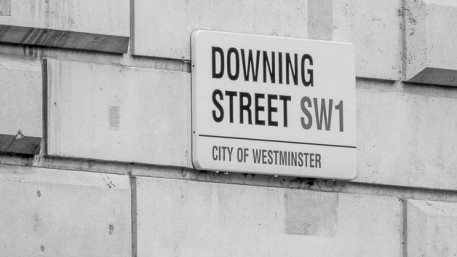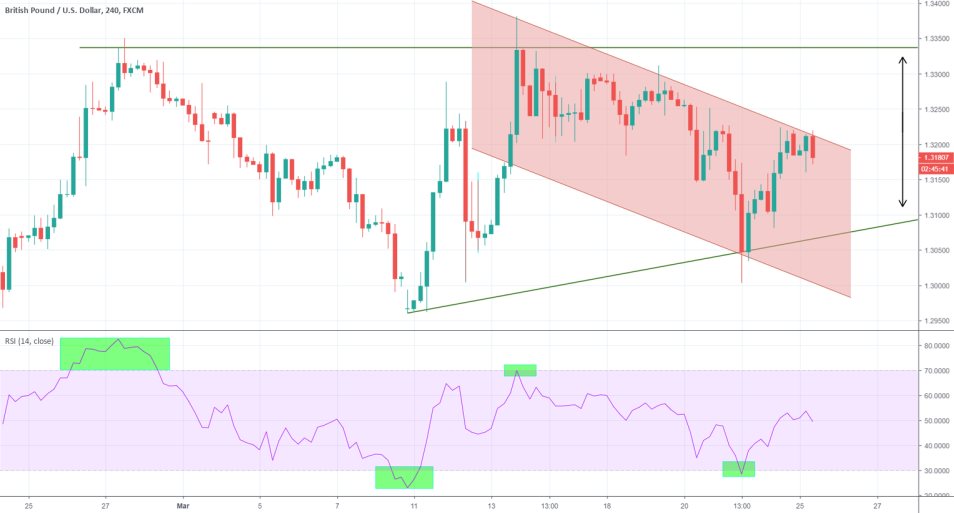
Yet another week of turbulent Brexit deliberations is expected to unfold and it seems that Theresa May’s task of delivering a soft divorce has never looked as daunting as it does now.
Over the weekend some credence was given to rumours that the PM might be ousted from office before the actual separation date, owing to her recent misfortunes at the European Parliament and her two failed attempts to pass through her divorce proposal.
The Chancellor of the Exchequer Phillip Hammond was speaking this weekend on Sky’s “Sophy Ridge on Sunday", and while officially backing May, he also acknowledged that a second referendum is an option, saying that it is a "perfectly coherent proposition".
He also argued that if the MP`s continue to reject May’s trade deal, it will be "up to the lawmakers to come together to find a way forward", as cited by Bloomberg media.
Such commentary by a high-ranking official exemplifies the ongoing polarization in the cabinet, between the PM on the one side and the House of Commons on the other.
The Brexit situation is continuously developing and there is news every hour but as of now (12 am UTC), in an earlier Parliamentary session from today the MP’s have proposed seven amendments to Theresa May's plan proposal, the most popular of which is a motion to give
“Parliament control of proceedings for a single day on Wednesday, so politicians can hold a series of so-called indicative votes on various options to find out which can command a majority “
The above statement is quoted in a Bloomberg article. Essentially, this is an attempt by the House of Commons to take control of the overall Brexit negotiations from Theresa May and steer them in the direction of the most popular opinions amongst the MPs, which can be either seeking longer-term divorce extension from the EU council for a softer Brexit, opting to revoke Article 50 or proposing a second referendum.
If the Speaker of the House John Bercow chooses this proposition out of the other six motions, then the GBP is expected to be quite volatile this Wednesday, especially if the possibility for a second referendum becomes more evident and realistic.
Otherwise, Theresa May will be attempting to find more support from the pro-Leave members of her own party, so that she can try to call for another Parliament vote and attempt to push forward her trade deal proposal for a third time.
In this scenario, the volatility on the GBP is expected to be increased towards the end of the week, depending on when (if) the actual parliamentary vote takes place.
The most likely time for that to happen would be either Thursday afternoon or Friday.

Trendsharks Premium
Gold is undergoing a correction, as investors take profits to offset losses from falling stock prices, impacting their margins. However, we anticipate a renewed wave of [...]
The Swiss stock market index is mirroring its global counterparts, such as Germany 40 and US100, experiencing a sharp decline following the announcement of new [...]
We’re analyzing the weekly chart to grasp the broader market trend. Over the past three years, the US30 index has surged by 17,000 points, often resembling a nearly straight [...]
Over the past week, the DAX has experienced a sharp decline, plunging by an astonishing 3,400 points. This downward movement is not isolated, as its international counterparts, such as the UK100 and US100, are also facing significant [...]
EURUSD recently formed a double top at 1.0930, signaling a potential trend reversal, and has since begun a correction. After a 600-pip rally since early March, a pullback at this stage is both expected and healthy. Given these conditions, we are placing a [...]
Since early March, EURJPY has surged nearly 1,000 pips, providing us with several excellent trading opportunities. However, as the rally matures, many early buyers are beginning to take profits, leading to a noticeable slowdown in the uptrend. On Friday, the pair formed a [...]
The AUDJPY currency pair continues to be dominated by bullish momentum, as multiple golden cross patterns reaffirm the strength of the ongoing uptrend. Despite this, we are witnessing a much-needed [...]
The EURAUD currency pair appears to be undergoing a trend reversal, signaling a potential shift in market direction. A notable technical development is the formation of a Death Cross on the chart, a widely recognized bearish indicator that typically suggests a [...]
After securing an impressive 200-pip profit last week, the EURJPY currency pair is now undergoing a southward correction, retracing some of its recent gains. Despite this temporary pullback, the Golden Cross remains intact, reinforcing our view that the overall trend continues to be [...]
The appearance of a Golden Cross in Silver strengthens our analysis that the metal is currently in a strong uptrend, indicating further bullish momentum in the market. This technical pattern, where the short-term moving average crosses above the [...]
This trade presents a considerable level of risk and can be classified as an opportunistic move based on recent price action. The GBPUSD currency pair has experienced a substantial bullish rally, surging by nearly 500 pips in a strong upward movement. However, after this extended period of appreciation, the pair is showing signs of a potential [...]
The anticipated Death Cross on the SMI20 appears to be failing as price finds strong support at the 23% Fibonacci retracement level. After testing this area, the index has shown bullish strength, printing several large green candles, signaling an increase in [...]
A Golden Cross has just appeared on the USDJPY chart, signaling a potential bullish move. This technical pattern occurs when the 20 period moving average crosses above the 60 period moving average, a widely recognized indication of increasing [...]
After 2 months of a down trend, we finally see some indications of price recovery for Oil. The golden cross, a historic buy signal, supports this [...]
For the past month, the German DAX40 has experienced a remarkable 10% surge, reflecting strong bullish momentum. Despite ongoing market volatility and frequent pullbacks, every dip continues to attract fresh buyers, reinforcing the [...]
Oil continues its downward trajectory, despite occasional pullbacks. The overall trend remains bearish, reinforced by multiple Death Cross patterns, a classic sell signal indicating further weakness. Adding to this bearish outlook, the critical [...]
Over the past few days, gold has experienced a sharp decline of more than $100. This downturn can be attributed in part to traders securing profits to manage their margins, which are under strain due to the significant drop in major indices. Currently, gold has fallen below the [...]
The NASDAQ 100 index is showing strong bullish momentum, as evidenced by the formation of a Golden Cross on the chart. This classic buy signal occurs when the short moving average crosses above the long term moving average, suggesting that upward momentum is [...]
The EURAUD currency pair has encountered a significant resistance level, failing to break above the critical 61% Fibonacci retracement level. This suggests that bullish momentum is weakening, reinforcing the case for a potential downward move. Given this technical setup, we favor entering a [...]
The UK100 is experiencing a remarkable rally! Over the past few weeks, the British stock market index has surged nearly 800 points. Each minor dip has attracted more buyers, fueling the bullish momentum. However, since last week, we’ve observed a slight [...]




















